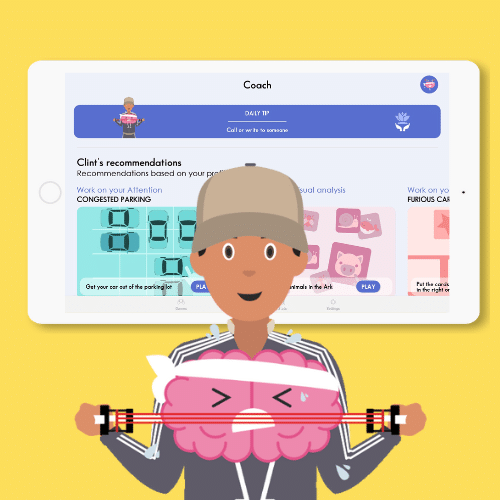Serenity and inner peace can be defined as a calm, peaceful and balanced state of mind, where one is at peace with oneself and with others. To achieve this, it is important to take time for yourself, focus on the present moment and engage in activities that promote calm and relaxation. Meditation, yoga, deep breathing, walking in nature and gratitude are some of the common practices to find serenity and inner peace. However, everyone has their own way of finding this inner peace and it is important to find the method that best suits your own personality and needs. In this spirit, it is essential to seek to develop a positive approach, centered on self-acceptance, compassion and benevolence towards oneself and others.
In a fast-paced world, it’s easy to fall into anxiety. Fear of failing an exam, fear of losing one’s job, fear of getting sick, fear of dying… these are all situations that can make us lose our inner peace. In this article, we will share causes and effective solutions to regain serenity.
What causes stress and anxiety?
Life changes
Life changes, such as marriage, divorce, the birth of a child, the death of a loved one, a career change or a move, can all cause stress and anxiety. Positive changes can also cause stress, as they may require adjustment and lifestyle changes. Negative changes, such as job loss or divorce, can cause high levels of stress and anxiety, as they can affect financial security, interpersonal relationships and self-esteem.
The technology
It has transformed the way we communicate and interact with the world. While this has significant benefits, such as instant access to information and the ability to connect with friends and family from around the world, it can also cause stress and anxiety. Social media can cause feelings of social comparison and jealousy, as well as feelings of inadequacy and isolation. Smartphones can also cause information overload and addiction, which can lead to increased stress.
Biological factors
Biological factors, such as chemical imbalances in the brain, may also play a role in stress and anxiety. Studies have shown that levels of certain hormones, such as cortisol, are often higher in people with stress and anxiety. In addition, certain physical illnesses can also cause high levels of stress and anxiety, such as chronic pain and hormonal disorders.
It is important to note that each of us may react differently to these stressors and anxieties. What may be stressful for one person may not be for another. It is therefore important to recognize the stressors in our lives and find effective ways to manage them to maintain our mental and physical health.
How can we find serenity and peace?
Practicing meditation
Contrary to what some people think, inner peace is not the total absence of problems or sources of worry. Indeed, it is not possible to master everything in life. Despite all the preparations, it is important to keep in mind that there are (and always will be) situations that we cannot control.
When anxiety sets in despite a possible state of mind, meditation is one of the best techniques to regain inner peace. You can visit MentorShow to discover the meditation exercises to achieve serenity in the shortest time possible.
If possible, get out of your house and go for a walk. Take advantage of the calm of nature to reactivate your sense of wonder. This will free you from negative energies that could accentuate anxiety.
Doing adapted activities
To regain serenity, certain physical physical activities can help. Swimming, dancing, running, gardening… are all good ideas for releasing the tensions that prevent you from enjoying inner peace. You can also try yoga. This is an effective exercise to regain and maintain serenity. Yoga postures help to relax and stretch the body, while deep breathing helps to calm the mind. Yoga can be practiced in a classroom or at home with the help of online videos.
Knowing that everyday situations can easily push us to anxiety, it is important to adopt routines to maintain our inner peace. For example, you can create your own wellness rituals according to your schedule and your desires. Also, make sure you create a life for yourself so that you avoid situations that stress you out unnecessarily.
Take a deep breath
Deep breathing is a simple and effective technique to find serenity and inner peace. It consists of taking deep breaths, inhaling slowly through the nose and exhaling slowly through the mouth. Deep breathing helps to reduce stress and anxiety, calm the mind and promote relaxation.
Expressing gratitude
The practice of gratitude is about focusing on the positive aspects of our lives and expressing gratitude for them. Gratitude can be expressed in the form of a gratitude journal, where you write down the things you are grateful for each day. This practice helps cultivate a positive attitude and reduce stress and anxiety.

Practicing mindfulness
Mindfulness is a practice of focusing on the present moment, being aware of your thoughts and emotions without judging them. Mindfulness can help reduce stress and anxiety, improve concentration and promote a sense of calm and clarity.
The benefits of meditation on mental health
Improved mental health and well-being
Serenity and inner peace can help improve mental health and well-being. People who practice relaxation techniques, such as meditation, mindful breathing or yoga, can reduce stress levels, improve sleep quality and strengthen their immune system. It can also help a person better manage stressful situations, stay calm and face life’s challenges more effectively.
Also, when you are at peace, you are more likely to feel happy and satisfied with your life. You are better able to live in the moment and focus on the positive aspects of your life rather than the problems or challenges you face. This can help you maintain positive relationships with others, improve your self-esteem and feel more in control of your life.
Tips for avoiding anxiety and stress
There are many ways to reduce stress and anxiety. Each of these strategies can be tailored to your needs and lifestyle. It is important to find what works best for you to prevent anxiety and stress from occurring and to live a more balanced and happy life.
Avoiding work overload
Overwork can cause stress and anxiety, so it’s important to set clear boundaries to avoid overloading yourself. Avoid taking on extra tasks if you are already busy, and learn to say no when necessary.
Avoiding sources of stress
If possible, avoid situations that cause you stress. If a stressful situation is unavoidable, try to deal with it proactively by finding solutions and ways to manage it.
Practice time management
It can help reduce stress and anxiety by allowing you to better organize your time. Try to plan your day in advance, set priorities and create a realistic schedule to avoid feeling overwhelmed.
Maintain positive relationships
Positive relationships can help reduce stress and anxiety by providing emotional support and a positive outlook. Maintaining positive relationships with friends, family or a therapist can help reduce feelings of isolation and loneliness.
Avoiding procrastination
Procrastination can increase stress and anxiety, as it can leave a person feeling overwhelmed by the tasks at hand. Try to break down large tasks into smaller, more manageable ones, and set deadlines to avoid putting things off.
Play and relax
Play can be a great way to reduce anxiety and stress. Indeed, when we play, we tend to focus on the present moment and forget our daily worries. This can help us to relax and unwind. In addition, games often give us a sense of control and accomplishment, which can boost our confidence and reduce our anxiety. Games can also stimulate our creativity and imagination, offering us a pleasant escape from reality. Finally, gaming can be a social activity, allowing us to bond with others and feel connected. All of these elements can help reduce anxiety and stress, giving us a simple and enjoyable way to take care of ourselves.
Play on the CLINT program! More than 30 fun and cultural games
There are many ways to play and exercise your memory and cognitive functions. The daily practice of games and brain exercises allows you to relax, while developing your brain and memory!
The CLINT Brain Training program was designed specifically for adults to keep the brain healthy through fun and challenging brain exercises. It has over 30 cognitive games and targets concentration, focus, reflexes, language and many other cognitive functions.

Other articles that might interest you:
How Parents Can Contribute to Teacher Training
As we delve into the realm of education, it becomes increasingly clear that teacher training is not merely a...
Differentiated Instruction Approaches: Training and Practical Application
Differentiated instruction is a pedagogical approach that recognizes the diverse needs of students in a classroom. It...
Key Skills Teachers Need to Support Students with Special Needs
As we embark on our journey to support children with special needs, it is essential for us to cultivate a deep...










